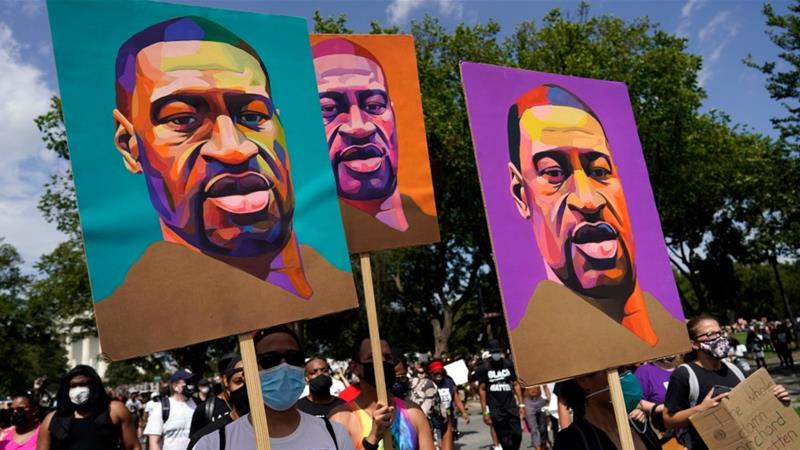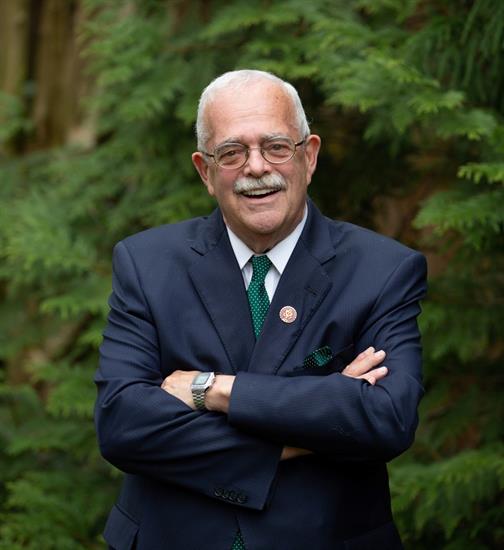Deconstructing “Black Lives Matter” in Post-George Floyd America
by Sherman Gillums Jr., Contributor
Some time has passed since George Floyd’s killing and the ensuing flash flood of protests began nationwide. A lot has happened as our society has hopefully evolved on the notion that black lives matter as much as any other lives in America. The good thing is most reasonable people have appeared to “regress to the mean” on the issue, meaning the consensus is black lives do matter to most people, within the intended context. While some see the ideological aims of “BLM” the organization as a bridge too far, with its calls to foster a “queer affirming network” and reject the “nuclear family” model, it can be rationalized as an effort separate from the general desire to stop police brutality against innocent people of color.
Undeniably, there are those ideologues who have opposed even the rallying cry from the start and use opposition to the group’s agenda merely as cover. One way to undermine the goals of any organization is to blend in and commit discreditable acts in their name. The Nazi werewolves did it after the defeat of Hitler’s Germany. Al Qaeda did it in Iraq. Today, it’s the ‘boogaloo’ movement, a loose network of extremist and radical activists and race baiters calling for civil war, in addition to a mix of purely opportunistic looters and ANTIFA-linked saboteurs who simply want to disrupt and destroy. Seeing a bunch of protesters and simply labeling them all “BLM”, even though many were agitators or counter protesters who were just as destructive, has worked like a charm because there’s no way to distinguish among them in many cases. For some people, making no distinction is the point.
Then there are those who still feel the need to retort “white lives” or “all lives matter” or “what about Chicago” when triggered by hearing or reading “black lives matter”. But these people miss one critical point in the grand scheme of the problem: It’s young black men and women in many cases who need to be convinced their lives matter, not just white folks. When you believe your life matters, you make better choices, even when your present circumstances feel hopeless. I’ve lived it and seen it all my life, even after my own father was killed by unarmed by a police officer in 1973. When a young person can see him or herself going to college or the military, raising a family, or simply not going to prison or getting killed, that individual is less likely to lose his or her humanity and disregard the lives of others.
To keep challenging the idea that black lives matter is to burn down your own house to smoke out a mouse, in some cases. I get that it feels like a form of reverse racism to some. But those same folks can’t claim that all things are equal then ask why it appears black people are always committing most of the crimes, even though it’s factually untrue. That is, if you believe in things like FBI statistics. In the most recent National Incident-Based Reporting System report, among over 5.6 million known offenders, more than half (53.9 percent) of known offenders were white, 27.4 percent were black or African-American, and 2.2 percent were of other races.
Now there will be those who reject these statistics because it counters beliefs they’ve held for too long. It helps their self esteem to believe blacks who are brutalized must’ve deserved it. But those numbers don’t matter anyway when stereotypes are individualized and repeated ad nauseam, especially to young people whose only frame of reference is what they see in media and outside their windows. It’s a narrative that makes it much easier to devalue the lives of young people of color, too many of whom choose to make it a self-fulfilling prophecy by acting out racial stereotypes.
Our government once embraced the theories of Cesare Lombroso, a 19th-century Northern Italian doctor, who argued that Italian immigrants were natural born criminals. Even decades later, this isn’t exactly helped by romanticized depictions of mafia life in movies like The Godfather and Goodfellas. It’s all fun and games until it shows up in policy like the U.S. Immigration Commission’s 1911 Dillingham report that led to anti-Italian Immigration Act of 1924. Or aggressive policing practices in certain neighborhoods that are arguably not racist in intent but do manage to uncover implicit biases. Biases that predictably lead to confrontations that get cinemized on YouTube, where seeing is not just believing — it’s also reinforcing.
That said, we’ll politicize a ham sandwich in this country if it fits an agenda, especially during an election year. So I don’t expect too many minds to change at this point. But much like 1861 and 1968 in America, 2020 feels like the beginning of a stormy era, not the peak of it, where tensions will need to play out and exhaustion set in before we’ll settle at an impasse with which we can all live. One where we will no longer have to say “black lives matter” because it will be self evident, especially to young people of color who want so badly to believe it.



